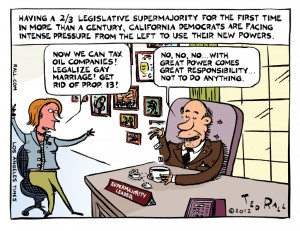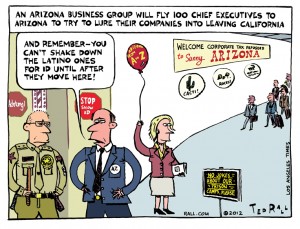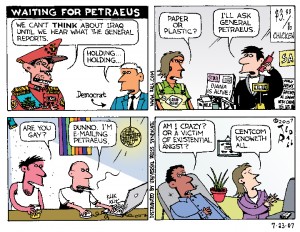I draw cartoons for The Los Angeles Times about issues related to California and the Southland (metro Los Angeles).
This week: Having won a two-thirds supermajority in the Legislature for the first time in more than a century, California Democrats are now facing intense pressure from the left as they prepare for next year’s legislative session.



